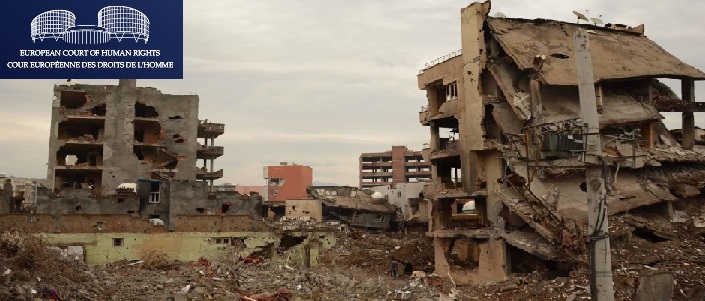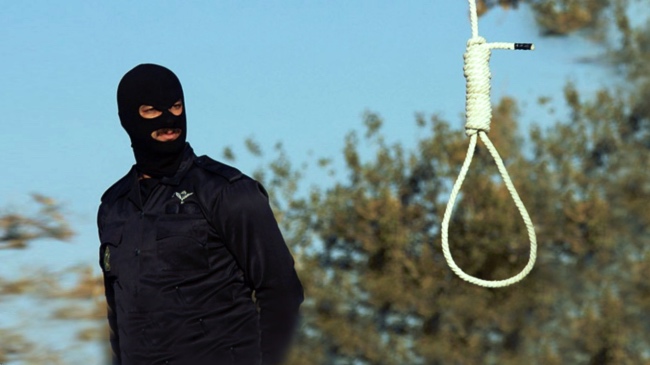
The case about the massacres and violations in Cizre during the self-governance resistances was heard in the European Court of Human Rights (ECHR) today. The appeals for Omer Elci and Orhan Tunc, who lost his life in the massacre, were chosen as pilot cases from among over 30 others.
The hearing, expected to last 2 hours, lasted for 3 and a short press conference was held with participation from the Tunc and Elci families.
Lawyers Ramazan Demir and Newroz Uysal, Zeynep Tunc who is the wife of Mehmet Tunc who lost his life in the massacre in Cizre, and Guler Tunc who is the wife of Orhan Tunc who also lost his life were present in the press event. HDP MP Ayse Acar Basaran and former Sirnak MP Faysal Sariyildiz were also with the families.
DEMIR: THE GOVERNMENT COULDN’T JUSTIFY WHAT HAPPENED
Lawyer Ramazan Demir said the appeals of Elci and Tunc families were chosen as pilot cases from among over 30 appeals to the ECHR during and after the massacre in Cizre, and added: “Our fundamental argument is that the state security forces carrying out operations in civilian residential zones and striking these residential areas with weapons of war goes against the law, and is not proportional, feasible or in a manner that would prevent civilian losses as per the European Convention on Human Rights Article 2 regarding the protection of the right to life. Similarly, we argued our case about the injunction on Orhan Tunc not being implemented. We argued that the investigation (by Turkey) regarding the death of Orhan Tunc was not effective, independent or neutral.”
Lawyer Demir said the ECHR asked direct questions regarding the Turkish state’s defense and added that the court demanded defense regarding the character of the “operations”, whether there were any precautions taken to avoid civilian losses, how Orhan Tunc’s death occurred and why the injunction wasn’t implemented.
Demir said they knew Turkey’s defense already and continued: “Actually, the Turkish government wasn’t able to provide most of the answers the ECHR demanded. At least they were not of the nature the court was demanding, in our opinion. The rights violations that occurred in Cizre were almost all voiced. But we couldn’t speak of everything because the court provides a limited amount of time.”
Lawyer Ramazan Demir pointed out that they were unable to submit to the ECHR all evidence and expert views they wanted to, and added that they were given 25 minutes.
Demir stressed that they saw that the Turkish state wasn’t able to justify or account for the massacres they committed in Cizre. Demir said the Turkish state gave “elusive answers”, and added that the court will issue a verdict at a future date.
ECHR QUESTIONED WHETHER DOMESTIC REMEDIES WERE UTILIZED
The court judges posed questions to both parties about whether domestic remedies were utilized or not, and whether they were obstructed. According to ECHR bylawys, domestic remedies must be exhausted except for certain cases.
TURKISH SIDE ARGUED THE NON-EXISTENT DOMESTIC REMEDIES WERE “EFFECTIVE”
The government’s defense was based on having the case as a whole deemed inadmissible by the ECHR. The Turkish defense committee argued that domestic remedies hadn’t been exhausted and thus the case should be heard at the Constitutional Court, arguing that the Constitutional Court is in fact “an effective domestic remedy”.
LAWYERS POINT OUT CURFEWS ARE NOT BASED ON ANY LAWS
Lawyers of the Tunc and Elci families pointed out that the curfew at the time was based on the Provincial Administrative Act, which doesn’t include a direct statement that governors can declare curfews, only that governors “will take precautions they deem necessary”.
Lawyers of the Elci and Tunc families stressed that as such, the curfews go against the constitution and international law, and were “not based on any laws whatsoever” in any case.
ORHAN TUNC COULD HAVE BEEN SAVED
The lawyers pointed out that Cizre has a population of over 100.000 people and stressed the war-like scenes where tanks fired at civilian residences. They stated that the population’s rights of access to power, water, food and medicine was obstructed and people were unable to leave their homes, adding that under such circumstances, domestic courts can’t be utilized and there is no possibility of collecting evidence.
On the lawyers’ assessment of the murder of Orhan Tunc, they said Tunc “could have been saved if so wished” as he lost his life due to an ambulance not being sent. They also stressed that the argument that an ambulance wasn’t sent because it “couldn’t be sent due to security concerns” was null. The ambulance called for Orhan Tunc while he was injured didn’t go to the area due to “security concerns”, and with the obstruction of the ambulance Tunc lost his life.
Considering that the Turkish government hasn’t conducted any serious investigations to date, it can be seen that the Turkish state’s footing is quite weak.
MASSACRES SUBJECT TO THE CASE
The curfew declared by the Sirnak Governorate started on December 14, 2015 at 23:00 and lasted 79 days, ending on March 2, 2016. The blockade of 79 days saw 259 persons killed. Most of the 177 persons, including heavily wounded ones, who sought refuge in several basements were burned to death by Turkish forces. 92 persons were buried in a cemetery of the nameless without any information on their identities. Dozens of people were shot to death cooking in their kitchens, sitting in their living rooms, as they went to the outhouses for their sanitary needs, in the middle of the streets, etc. During the blockade, no politicians, including elected representatives, no journalists, no representatives from any institutions were allowed to enter Cizre. The announcements for people to leave their homes before the blockade started, the mortar fire and other such psychological pressure tactics forced the civilian population to migrate, and there was a great massacre against those who did not leave their homes.
THE LEGAL PROCEDURE
Several appeals were submitted to the Constitutional Court in 2015 and 2016 regarding the rights violations in these cities. These appeals demanded the Constitutional Court and the ECHR to issue injunctions to avoid further violations. The ECHR ruled to prioritize the appeals according to Article 41 of its bylaws. The ECHR demanded defense from Turkey for 34 appeals representing over 160 individuals about the curfews on December 15, 2016 and announced that the court would issue a verdict on the principle of the case at a future date.
The court announced in July that a hearing would be held on both the principle and the admissibility of the appeals, but decided to pick two cases as a pilot and apply the discussions to be held on procedure and principle to all remaining cases, instead of holding full separate hearings for all cases. The court announced that the legality of the curfews would be discussed over the Omer Elci case, and the substance of the operations in Cizre following the curfews and the deaths caused by them would be discussed over the Orhan Tunc case.
The hearing was decided to be held over admissibility and principle, and representatives from human rights organizations and lawyers from all over Europe and Turkey attended. It had previously been announced that some individuals at official positions in state institutions during the curfews would also attend the hearing, including the Cizre governor of the time.

